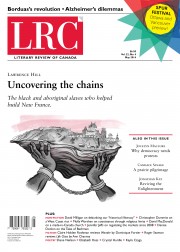Like many commentators, I’ve been complaining a lot about the so-called “post truth” political environment. In response, some people have been trying to enlist my support for a “truth in politics” act. The idea is pretty simple. Why not make lying illegal? Why not punish politicians for saying one thing while campaigning, then doing another?
This is something that Democracy Watch has been pushing for a long time. Perhaps the highest-profile supporter of the idea is Andrew Coyne (e.g. here), which I find in some ways rather surprising.
I do not support this idea, because I think the issue is far too complicated to be dealt with legislatively. Just to pick an obvious point, there is an important difference between telling a lie and breaking a promise, which the concept of “honesty” unfortunately obscures. I would support narrower, more targeted legislation, dealing for instance with the problem of misrepresentation in political advertising.… Continue reading


